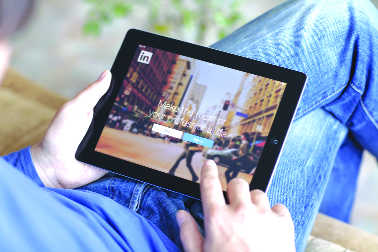
Istock
What was life like before the internet? Once upon a time, we asked our grandparents what life was like before the advent of electricity. Electricity and I were born together in Almora in 1951. However, for several years after that historic occasion (the advent of electricity, not my birth I mean) there were still vestiges of the dark ages that lurked in several corners of the town. Old servants’ quarters still made do with an oil lamp or a lantern and street lights were powered by such low-wattage bulbs that we were always sent out after dark with a torch in hand or a faithful retainer carrying a lantern who stood respectfully before us to light ruts and puddles on the road.
There were other interesting lifestyle habits acquired over centuries, chief among which was the rule that one must maximise the use of sunlight and daylight. Early to bed and early to rise was quoted in all such homes and meals were cooked and eaten before the sunset and insects and rodents emerged from dark crannies. In the matter of a few decades, these habits have been forgotten and the new generation now has almost reversed the classic circadian sleep cycle. My father-in-law was fond of saying: ‘The rising generation retires when the retiring generation rises’, in a sort of mild rebuke to us when we came in late from a party.
Today, rare is the home where dinner is served before 8pm and even rarer the home where a family sits down to eat breakfast together. As for the young, I have no idea when they go to bed or if they do so at all. I have stopped calling my sons because their time cycles and mine are at complete variance. In some cases it is to do with the fact that they live in different continents and so have reversed time zones from us, but the one who lives in Delhi hits the sack an hour or so before I wake. So messaging is all we do to exchange important news.
However, I digress from my original question: how has the information age changed our lives? As in the case of any major technological change, there are positives that we must list out first. The rapid movement of news and information and the ready availability of information must rank as a revolutionary change. If knowledge as power was jealously held by a privileged few, then we must hail the internet for breaking down the unjust barriers that denied this to those who were either socially or economically disadvantaged. As a tool of empowerment, I cannot think of any technological revolution other than the printing press that has made access to information a universal phenomenon. Libraries, newspapers, journals and various portals act as quick referrals and have provided vital information to those who do not have access to libraries in their villages and towns.
It is no wonder that virtually every political party includes free laptops, wi-fi and smart phones to attract the young voters in backward states, such as UP. The long-term benefits of this will be revealed over time but the hunger to be part of a new world where Google is God is manifestly visible. Strangely, some political leaders still harp on secularism and divisions of caste and class as if they are modern day Rip Wan Winkles who have been asleep while the country has moved on.
One cannot deny the overwhelming role that digital technology has acquired in our lives and how it has empowered even those who are not literate in the old-fashioned definition of the term. Yet, one must now also begin to ask whether this vast world of information that is opening up is all for the good. Information is fine as long as it is regarded as such, but when this becomes the substitute for knowledge is when one begins to wonder whether we are headed in the right direction. Post-truth is the moniker that has become fashionable now and refers to the tendency that we are all prone to in uncritically accepting every Facebook post and tweet as substantiated fact.
Add to this the masquerading of views as news (six panelists debating a topical issue with every night) and the steady increase of paid news across the print and electronic media and you have a dangerous cocktail being prepared. Content is being subsumed under the pull of the medium that conveys it. Years ago, I started a PhD (never completed) on Marshall McLuhan’s pioneering work on this topic and it amazes me how prescient he was almost half a century ago when he predicted a scenario likely to emerge in the future. I may not be alive to see it, but how I would love to see the world at the end of this century.
As I sign off this column, a fervent prayer in my heart is that Punjab gets the best Chief Minister. Maturity and love for its people must guide the hand that rules it for the next five years. About UP, what can one say? Its people have a choice between goondaism, corruption and communalism: take your pick!



























